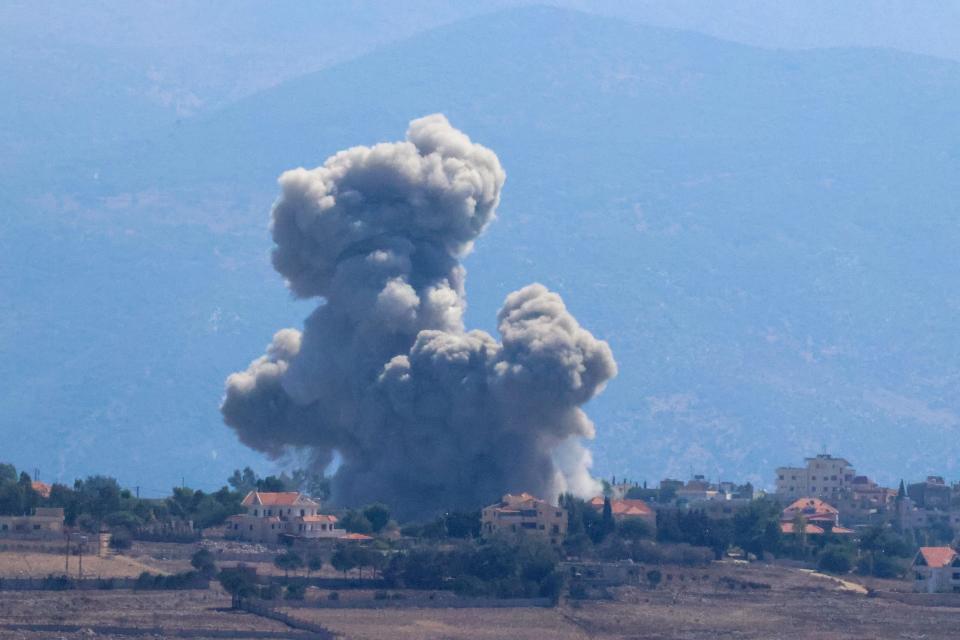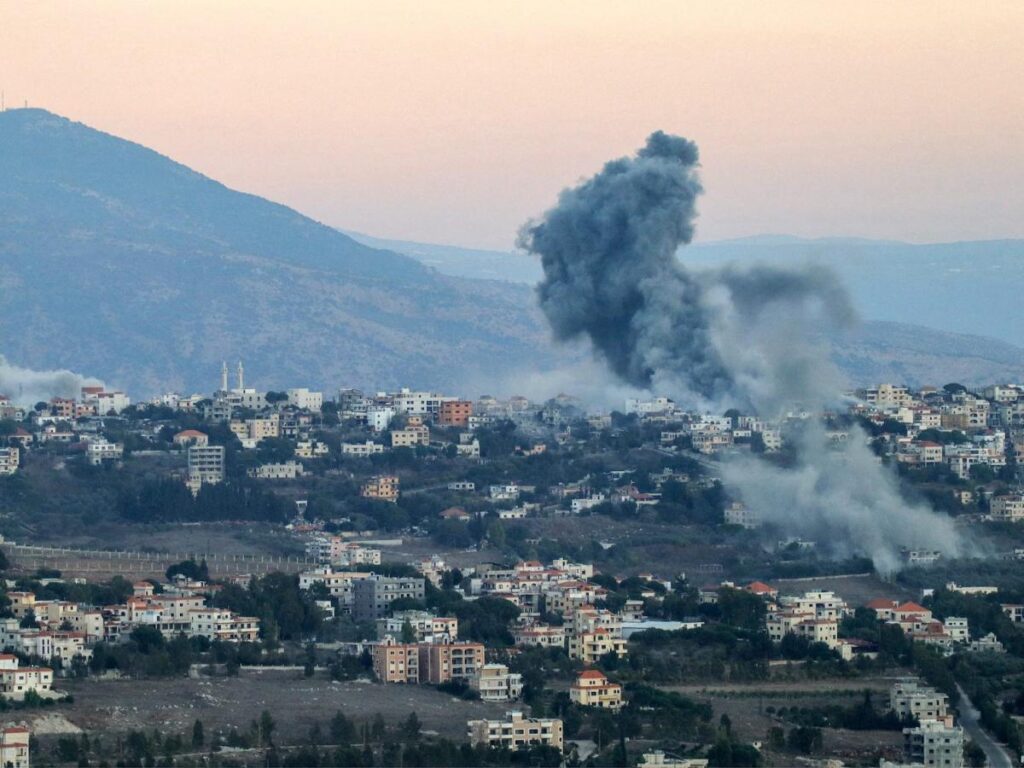-
Israel launched ground incursions into Lebanon on Tuesday, opening a new war front.
-
The IDF said they were “limited, localized and targeted ground attacks” on Hezbollah targets.
-
Deeper offensives could embroil the army in a new and protracted war, military experts told BI.
According to security experts, Israel faces a security dilemma when it comes to deciding how far to go in its operations in Lebanon.
Early Tuesday, the Israeli army said it had launched “limited, localized and targeted ground attacks” against Hezbollah targets and infrastructure in southern Lebanon – opening a new front in the escalating conflict between Israel and the Iran-backed militant group.
The ground offensive comes after months of cross-border projectile sharing and a series of Israeli airstrikes on September 27 that killed Hezbollah’s longtime leader. Hassan Nasrallah.
The IDF said its ground operation would follow a “methodical” plan. add it would continue to fight until it achieved all its war goals.
But security experts told BI that the IDF risks protracted conflict and increasingly bloody fighting in Lebanon if it decides to move further into the country.
“A large-scale Israeli ground offensive in southern Lebanon would not be an easy task,” Clionadh Raleigh, executive director of the Armed Conflict Location and Event Data Project, and Ameneh Mehvar, a Middle East regional specialist at ACLED, said in a joint declaration. statement.
They told BI that Hezbollah had been preparing for this scenario “for years” and that the IDF “would likely face more intense fighting than in Gaza, which could lead to greater Israeli casualties.”
Farzan Sabet, senior research associate at the Global Governance Center and the Sanctions and Sustainable Peace Hub at the Geneva Graduate Institute, went further in his assessment.
“One of the biggest risks posed by such operations is that Israel will squander major strategic and tactical victories over Hezbollah and become entangled in a military quagmire in Lebanon,” he said.
A more dangerous terrain than Gaza
Israel’s ground operations in Lebanon bear some similarity to the operations it conducted in Gaza about a year ago.
In October 2023, the IDF mounted limited ground incursions into Gaza and called on Palestinians to evacuate to the south of the enclave before launching a broader offensive.
While the early stages of the IDF’s ground operations in Lebanon are similar to the early operations in Gaza, Hezbollah’s military capabilities, Lebanon’s political conditions and topography make the country a very different reality, security analysts told BI.


Sabet of the Geneva Graduate Institute said an Israeli offensive in Lebanon would be “different” from that in Gaza, in that the IDF would be operating in “much larger” territory against a “larger and more advanced” adversary.
While the Gaza Strip is approximately 230 square kilometers mateLebanon is approximately 4,036 square miles.
Hezbollah too estimated to have stocks of up to 200,000 missiles.
Burcu Ozcelik, a senior research fellow for Middle East Security at Britain’s Royal United Services Institute, said the IDF’s limited ground attacks across the Lebanese border would expose its forces to fighting with Hezbollah fighters on terrain that is Hezbollah’s “home turf.” is. and where it has control over military infrastructure and local communities.
“This is not an area peppered with dense urban centers like the Gaza Strip,” she told BI.
ACLED’s Raleigh and Mehvar, meanwhile, said the nature of the operation in Lebanon is different from that in Gaza. Israel is not fighting the Lebanese government – unlike the de facto government in Gaza, they said.
As such, they do not expect “extensive carpet bombing” and “savage” as we see in Gaza.
“Israel’s goal is to ‘reduce’ Hezbollah’s military capabilities and drive it from the border,” they said.
How far it should go
Israel has carried out airstrikes and assaults on southern Lebanon for months to undermine Hezbollah’s capabilities.


However, it remains unclear how deep Israel’s ground incursions could go, according to Raleigh and Mehvar.
They said the IDF is unlikely to extend beyond southern Lebanon due to the risk of becoming “increasingly” entangled in a new “protracted” conflict in southern Lebanon.
They added that “Hezbollah still retains much of its capability, including the missile stockpiles it has built up since 2006 that could be used against Israeli military and civilian targets.”
Sabet, meanwhile, said history is “littered” with examples of countries whose armies entered another country’s territory for limited military operations but ended up embroiled in costly and damaging protracted wars.
He cited Israel’s own “costly” experiences with the invasion of Lebanon, including the second Israeli invasion of Lebanon in 1982 and the Second Lebanon War in 2006.
Since the October 7 Hamas terrorist attacks on Israel last year, the Israeli economy has suffered, as has its gross domestic product (GDP). contract by 20.7% in the last quarter of 2023.
In the long run, the war in Gaza alone could cost Israel 10% of its annual GDP, Yannay Spitzer, an assistant professor specializing in economic history and applied microeconomics at the Hebrew University of Jerusalem, told IPS. The Media Line last month.
However, these amounts, and Israel’s overall military calculations, could quickly change if Iran becomes involved alongside Hezbollah in Lebanon.
A senior US government official said this outlets on Tuesdaythat Iran was preparing for a ballistic missile attack on Israel.
“We are actively supporting defensive preparations to defend Israel against this attack,” the official said.
During a speech Last week, Israeli Prime Minister Benjamin Netanyahu warned the “tyrants of Tehran” at the UN, saying: “If you hit us, we will hit you.”
He added: “There is no place in Iran that Israel’s long arm cannot reach.”
Read the original article Business insider







